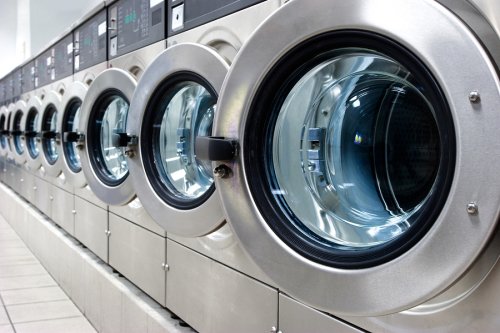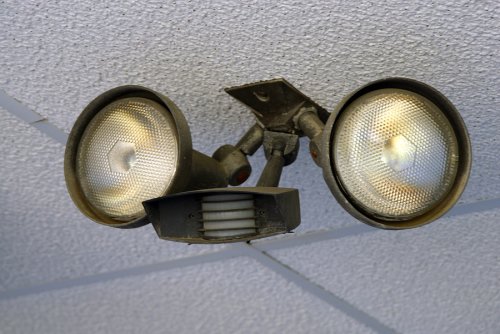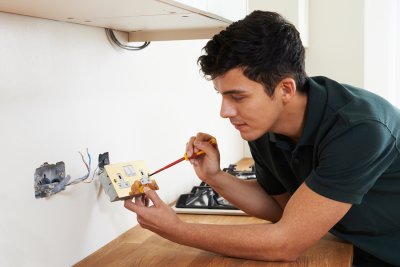-
Identifying Appliances That Should Have a Dedicated Circuit
When your residential electrician creates a new wiring plan for your home, he will typically include several dedicated circuits . Your dedicated circuits are designed to provide additional power to certain types of appliances. With services from a residential electrician in San Jose, you will be able to figure out which of your appliances need dedicated circuits in order to be safely connected to your breaker box. After your dedicated circuits have been created, you will be able to use your appliances with confidence.
There are a few types of appliances that almost always require dedicated circuits. Washing machines, dishwashers, and clothes dryers are all examples of appliances that use enough power to need their own circuits. These dedicated circuits include grounding features and other safety devices that will prevent your appliances from overloading your electrical system. In order to ensure that your electrical system complies with national electrical code, you may need to install several dedicated circuits throughout each area of your home.

-
Protect Your Home by Taking Advantage of Security Lighting Installation
You should always be concerned with the safety of your home, and there are a number of ways you can keep your home more secure. What some people don’t realize is that your residential electrician in San Jose can be of help throughout this process . You might consider a new lighting installation in order to change the aesthetics in a room or illuminate your backyard so you can keep the night going, but have you thought about the security benefits it can offer? Read on and protect your home by taking advantage of security lighting installation.
A security lighting installation actually makes your home safer in a few different ways, making it a great investment for you and your family. Firstly, security lighting gives potential criminals fewer options when it comes to staying hidden on your property. It’s much more difficult to break into a home when you’re in plain sight, which is why many robberies and home invasions happen at night. In addition to deterring criminals and reducing the chance of a break in, security lighting can make your property safer in general. Slipping down a set of outdoor stairs can hurt, but your lighting can help you stay secure.

-
Warning Signs of a Building That Should Be Rewired
When you are thinking of purchasing an older property, it is very important to have an electrician inspect the home’s wiring. Electrical standards and regulations have been updated over time, and an older home may contain not contain modern wires, grounding units, or breaker box systems. An electrician serving San Jose will be able to determine whether a rewiring project is needed for a property. Here is an overview of some warning signs that a building needs to be rewired.

Overheating Electrical Sockets
To determine whether a building needs to be rewired, your electrician may start by taking a look at the electrical sockets. If the sockets are hot to the touch after they have been turned on, they may be in need of new wiring. An electrical system that is overloaded or outdated may cause the electrical sockets to heat up dangerously. Replacing your wiring may also mean that you need to install brand new sockets in each room.
Outdated Fuse Box
An outdated fuse box is another key indication that a property needs to be rewired. When an electrician inspects your property’s wiring, he may take a look to see whether an older style of fuse box is still in place. If the fuse box has not been updated, this is a sign that the wiring in the home has also not been replaced. Replacing the fuse box and wiring will make the properly much safer for all of its occupants.
Damaged Sockets or Light Switches
Signs of damage to the sockets or light switches may also indicate that a building needs to be rewired. Your sockets may show signs of burns or loose fittings. Any visible signs to the sockets or light switches of a property will clearly indicate that the system needs to be rewired. After you have the home rewired, you can rest assured that its electrical system is safe for use.
-
Understanding the Most Common Wiring Issues
How old is your home? This is important information, especially considering that the age of your home is most likely the same age as the electrical wiring inside the walls. Out-of-date electrical wiring can cause all sorts of issues, especially when trying to power today’s every-growing collection of electricity-hungry appliances and electronics. The good news is that a certified residential electrician in San Jose can fix all of your home’s wiring issues and make sure they never happen again. Here’s a look at some of the most common wiring issues you may experience, and how your electrician can help.

Ungrounded Receptacles
An ungrounded electrical system is incredibly dangerous. Although ungrounded receptacles are not an electrical code violation, they are dangerous enough to warrant a call to the electrician. How do you know if you have ungrounded receptacles? It’s easy, just look for two-pronged outlets around your home. Not only are ungrounded receptacles dangerous for humans, but they can also damage your expensive appliances and electronics.
No GFCIs
Speaking of outlets, another common wiring issue is a lack of ground-fault circuit interrupters (GFCIs) in wet areas, such as the bathroom and kitchen. GFCIs shut down electrical circuits in four milliseconds to prevent fatal shocks. Electrical codes require GFCIs within four feet of any sink and on all garage, basement, and outdoor outlets. If your home lacks GFCIs in these required areas, contact a residential electrician in San Jose.
Aluminum Wiring
This type of wiring was very common in the 1960s and 70s as a cheap substitute for copper. Unfortunately, aluminum wiring is very dangerous. Aluminum corrodes when in contact with copper, and the loosened connections can lead to arcing and fires. Converting or retrofitting aluminum wiring can be hard (and dangerous) to do yourself, so it’s best to hire a certified electrician if you believe your home uses aluminum wiring.
-
Repairing Aluminum Wiring in San Jose
In the 1960s, copper prices skyrocketed in America, causing residential electricians and homeowners to turn to aluminum as a cheaper alternative. Unfortunately, aluminum wiring really is not compatible with older electrical outlets and switches in homes and has a high potential to cause house fires. If you happen to know that your home is wired with aluminum, you should consider calling an electrician serving San Jose to have your wiring repaired or replaced.
One way to repair aluminum wiring is to replace it with copper wiring completely. Otherwise, the U.S. Consumer
 Product Safety Commission (CPSC) approves two repair methods that involve splicing new copper wires into existing aluminum ones. The more expensive method utilizes specialized connectors called COPALUM, which is considered to be reliable and permanent. The other repair method uses a smaller lug-type connector called AlumiConn. For peace of mind and safety reasons, hire a certified electrical contractor to perform any of the jobs mentioned. That way, you’ll know it’s done correctly. Contact Delta Electric today!
Product Safety Commission (CPSC) approves two repair methods that involve splicing new copper wires into existing aluminum ones. The more expensive method utilizes specialized connectors called COPALUM, which is considered to be reliable and permanent. The other repair method uses a smaller lug-type connector called AlumiConn. For peace of mind and safety reasons, hire a certified electrical contractor to perform any of the jobs mentioned. That way, you’ll know it’s done correctly. Contact Delta Electric today!
RECENT POSTS
categories
- Uncategorized
- Delta Electric
- Commercial Electrical
- Residential Electrical
- Electric Circuits
- Dedicated Circuits
- Circuit Breakers
- Electrical Panels
- Electrical Wiring
- Safety Inspections
- copper wires
- Electrician San Jose
- Trained Electricians
- Electrical Services San Jose
- Malfunctioning Electrical Outlets
- Circuit Breaker
- Grounding
- safety
- Flickering Lights
- Arc Fault Breakers
- electrical system
- Aluminum Wiring
- Circuit Interrupters
- House Surge Protection
- Zinsco Panel Warnings
- Wiring Conversion
- GFCI outlet
- professional electrician
- Knob-and-Tube Wiring
- modern home electrical system
- Fuses
Archives
2024
2023
2018
2017
- December (4)
- November (4)
- October (5)
- September (4)
- August (4)
- July (4)
- June (4)
- May (4)
- April (4)
- March (3)
- February (4)
- January (3)
2016
- December (3)
- November (4)
- October (4)
- September (4)
- August (4)
- July (4)
- June (4)
- May (4)
- April (4)
- March (4)
- February (4)
- January (4)
2015
- December (4)
- November (4)
- October (4)
- September (4)
- August (3)
- July (4)
- June (4)
- May (3)
- April (4)
- March (4)
- February (2)
2014
- December (3)
- November (4)
- October (4)
- September (6)
- August (2)
- July (3)
- May (2)
- April (1)
- March (2)
- February (1)
- January (1)

